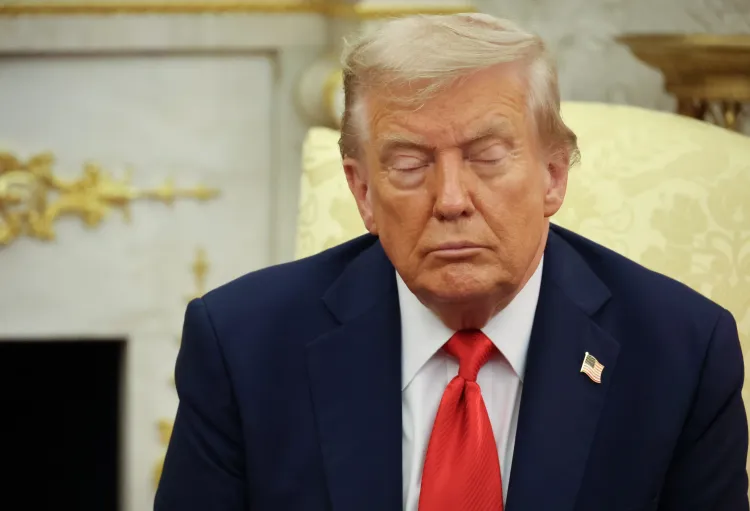Did the US Appeals Court Just Overturn Trump's Tariffs?

Synopsis
Key Takeaways
- A federal appeals court has invalidated Trump's reciprocal tariffs.
- The ruling emphasizes limits on presidential power regarding tariffs.
- Trump plans to appeal the decision to the Supreme Court.
- Existing tariffs on steel and aluminum will not be affected.
- The ruling may reshape future U.S. trade policies.
Washington, Aug 30 (NationPress) In a significant blow to U.S. President Donald Trump, a federal appeals court has invalidated the majority of the administration’s global reciprocal tariffs. The court determined that President Trump lacked the authority to impose tariffs. Following the ruling, President Trump announced plans to escalate the matter to the Supreme Court.
The ruling stated, “The statute grants considerable power to the President to take various actions in response to a declared national emergency, but none of these actions explicitly encompass the authority to impose tariffs, duties, or taxes.”
The court did not enforce its order until October 14, providing the administration time to pursue legal options in the Supreme Court.
However, the existing U.S. tariffs on steel and aluminum, which were established under a different legal framework, will remain intact.
Commenting on the President’s use of the 1977 International Emergency Economic Powers Act (IEEPA) to implement these “reciprocal” tariffs, the court emphasized that it did not grant Trump “unlimited authority to impose tariffs.”
“The statute neither refers to tariffs nor includes procedural safeguards that clearly delineate limits on the President’s authority to impose tariffs,” the court noted in its decision.
In response to the ruling on social media, Trump declared, “ALL TARIFFS ARE STILL IN EFFECT!” He further warned that the implementation of the ruling would “literally destroy the United States of America.”
He indicated that a Supreme Court appeal is forthcoming: “Now, with the assistance of the United States Supreme Court, we will leverage them for the benefit of our Nation,” he posted on Truth Social.
Since taking office again in January, President Trump has utilized tariffs as a significant negotiating tool to extract substantial concessions from countries during trade agreements or to penalize those that do not comply.
In May, the U.S. Court of International Trade in New York also ruled against Trump, stating that the President exceeded his authority in imposing tariffs.









